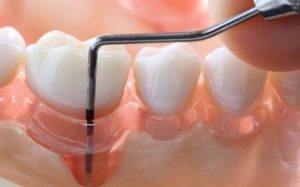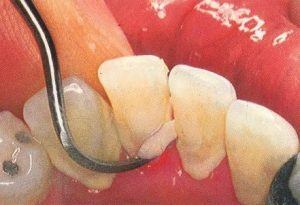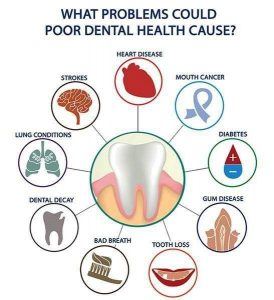
A dental prophylaxis, or prophy, is otherwise known as the “cleaning” you receive from your hygienist… and there is way more to this “cleaning” than you are probably aware of!
Assessing the Situation:
Prior to the actual cleaning, your hygienist will collect what we call, assessment data. He/she will do a quick intra-oral and extra-oral examination (often without you even knowing) keeping an eye out for anything suspicious such as lumps or lesions. Any findings will be discussed with the dentist prior to their thorough oral cancer screening. The hygienist will then take any necessary radiographs. These are critical tools necessary to properly diagnose dental conditions rendering treatment such as decay, abscesses or even bone abnormalities. Many such diseases can go undiagnosed without radiographs often leading to a worsened condition.
An assessment of your periodontal health is often next in the order of events. Your hygienist will use an instrument known as a probe to record measurements, or “pocket depths.” These readings let the hygienist know if your gums are healthy or are showing signs of gingivitis or worse, bone loss and periodontal disease. This periodontal assessment is important in identifying the type of cleaning your  hygienist will initiate. With healthy teeth and gums, a regular cleaning will occur. When bone loss or periodontal pockets exist, a “deeper” cleaning may be necessary. This treatment is called periodontal therapy and you might be in need of more frequent cleanings to keep these areas healthy.
hygienist will initiate. With healthy teeth and gums, a regular cleaning will occur. When bone loss or periodontal pockets exist, a “deeper” cleaning may be necessary. This treatment is called periodontal therapy and you might be in need of more frequent cleanings to keep these areas healthy.
Scale & Polish:
It’s finally time for the “cleaning!” At this point during the appointment, your  hygienist works hard to remove both soft deposits (dental plaque) and hard deposits (tartar) above and below the gum line. This is incredibly important as these deposits are what lead to dental decay, periodontal disease and even loss of teeth. Once the soft deposits harden into tarter (especially below the gum line), it is not possible to remove without proper skill and knowledge of instrumentation. In other words, do not try this at home!
hygienist works hard to remove both soft deposits (dental plaque) and hard deposits (tartar) above and below the gum line. This is incredibly important as these deposits are what lead to dental decay, periodontal disease and even loss of teeth. Once the soft deposits harden into tarter (especially below the gum line), it is not possible to remove without proper skill and knowledge of instrumentation. In other words, do not try this at home!
 Your hygienist will also work to remove stain that may accumulate over the year from certain foods and beverages. You will then receive a polish, get your teeth flossed and VOILA! Your teeth feel smoother and your smile looks brighter!
Your hygienist will also work to remove stain that may accumulate over the year from certain foods and beverages. You will then receive a polish, get your teeth flossed and VOILA! Your teeth feel smoother and your smile looks brighter!
Educator:
Your hygienist is also an educator. He/she will explain your current oral health condition and show you your radiographs or photos for visual support. They will tailor home care according to your individual needs and offer suggestions to help improve your oral health.
A Prophy is More Than Just Pretty Teeth:
Poor oral health not only affects your teeth and gums, but can also have adverse effects on your overall health and lead to complications such as:
- Cardiovascular Disease
- Certain Cancers
- Dementia
- Rheumatoid Arthritis
- Pulmonary Disease
- Diabetes
- Pregnancy Complications
Establish Healthy Habits:
It’s important to develop healthy oral habits now to help ensure a healthier body later.
- Brush twice daily with a soft bristle toothbrush for a full 2 minutes each time
- Floss daily
- Drink plenty of water and limit beverages loaded with sugar
- Eat a healthy diet including fruits and green, leafy vegetables
- Avoid smoking and tobacco products
- Visit your dentist twice per year for an exam and cleaning
At your next scheduled cleaning, we hope you have a better understanding and a deeper appreciation for what your hygienist does to care for you.

